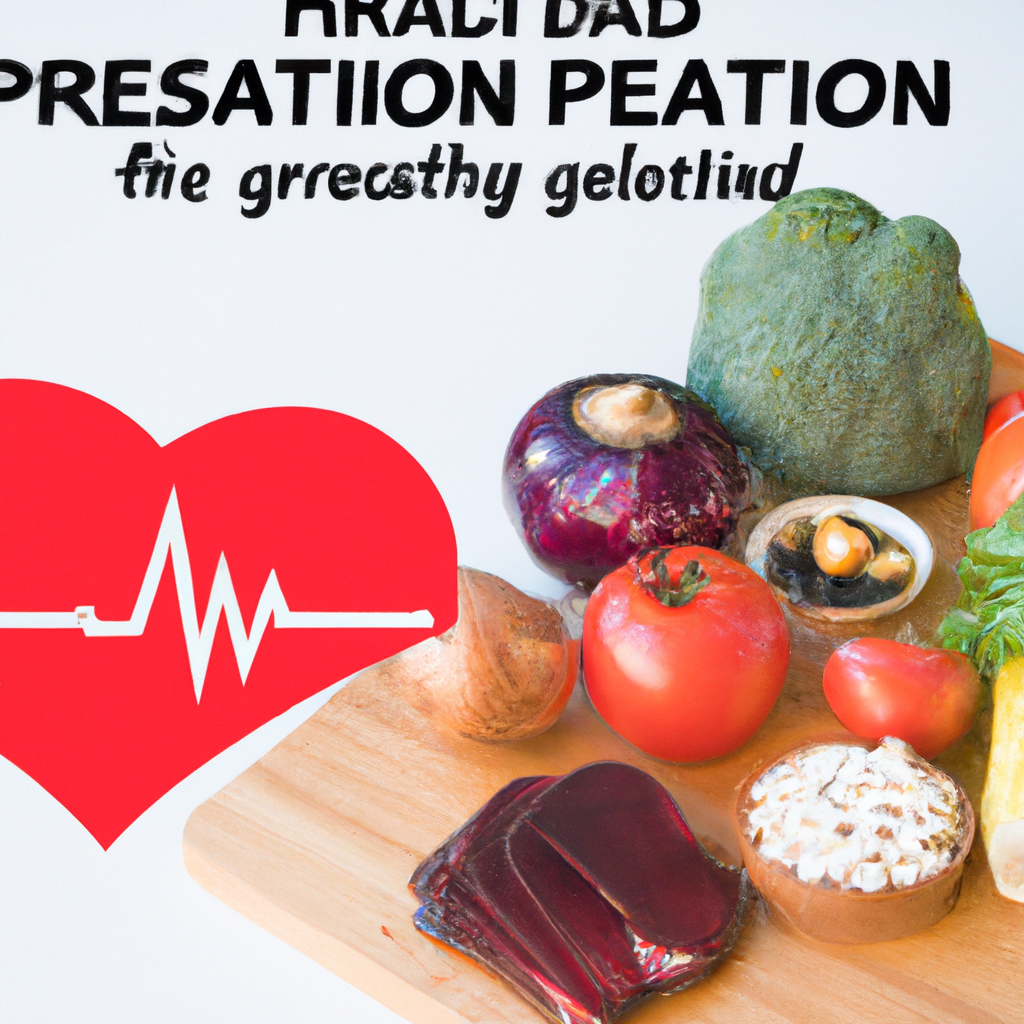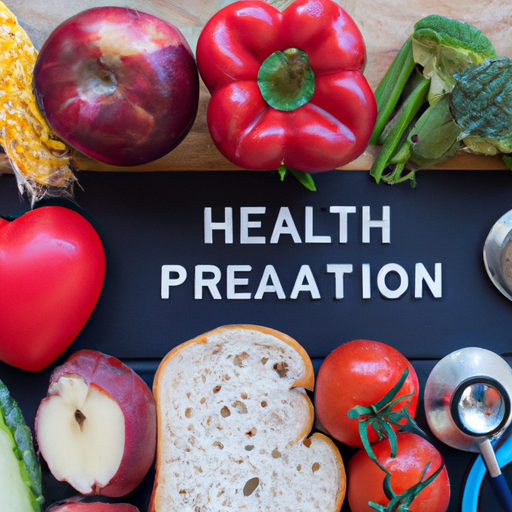Nearly half of all deaths in North America can be attributed to heart disease. But it doesn’t have to be that way. By implementing some simple ‘heart-protective’ nutrition into your diet, you can reduce your risk of heart disease and help keep your heart healthy for years to come. In this article, we’ll highlight some of the key foods that are scientifically proven to help prevent heart disease, so you can start your health journey the right way.
1. Power-Packed Protection: Heart-Healthy Foods to Include in Your Diet
When it comes to protecting your heart, your diet is one of the most important tools. Eating a nutritious meal, with plenty of nutrients, can help you maintain a healthy, strong heart. Here’s a list of the most beneficial foods to include in your diet to maximize heart health:
- Oats: Oats are loaded with soluble fiber and numerous minerals, like iron, zinc, and selenium.
- Berries: Packed with antioxidants and fiber, these can help lower cholesterol and blood pressure.
- Fatty Fish: Loaded with omega-3 fatty acids, which reduce risk of stroke, and improve blood circulation.
Some other powerhouse foods that can help keep your heart healthy include avocados, oranges, nuts, and legumes. Not only will these provide your body with valuable nutrients, but they will also help you manage your weight and cholesterol. A varied and balanced diet is essential to help keep your heart healthy, so be sure to include these power-packed items in your nutrition plan.
2. A Hearty Guide to Building Nutritional Defenses Against Heart Disease
Heart disease is the leading cause of death among adults in the United States. While there are many factors that contribute to the development of heart disease, there is no arguing that diet and nutrition are the most important. This guide outlines a few key nutritional recommendations to defend your heart against harm.
The best first step is to increase your consumption of fruits and vegetables. Aim for a minimum of 5 serves per day, with each serve being equivalent to one cup of raw vegetables or a medium piece of fruit. Additionally, ensure that your diet is rich in whole grains and low in unhealthy fats like saturated and trans fats as these can increase your LDL (bad) cholesterol levels. Other important nutrients include:
- Omega-3 fatty acids to reduce inflammation
- Folate to reduce your risk of stroke
- Fiber to reduce your levels of “bad” cholesterol
- Magnesium to reduce your risk of heart failure
Besides nutrient-dense foods, it is important to limit your intake of servings of sugary beverages and processed/fast foods. Also ensure moderate amounts of alcohol are taken in, or better still, drink in moderation. Overall, eating a balanced, healthy diet with plenty of colorful fruits and vegetables is a great way to give your heart the power to fight back.
3. Eating for Optimal Cardiac Wellness: How to Create a Heart-Friendly Diet
Eating for optimal cardiac wellness goes beyond just avoiding unhealthy foods, as there are a lot of foods that can not only keep your heart healthy but also optimize its performance. Here is what you should include in your diet to promote a healthy heart:
- Fruits and Vegetables: Fruits and vegetables should form the bulk of your diet as they’re rich in vitamins, minerals, antioxidants and disease-fighting phytochemicals.
- Whole Grains: Whole grains such as oats, quinoa, barley, brown rice, and bulgur provide energy, fiber, and essential minerals.
- High-Quality Protein: Lean proteins such as fish, poultry, and legumes are rich in essential amino acids and can help reduce the risk of heart disease.
- Healthy Fats: Monounsaturated and polyunsaturated fats such as olive oil, nuts, and avocados are an essential part of any diet and can help reduce LDL cholesterol levels.
Ensuring you get enough to eat of these items will help to keep your heart functioning optimally and reduce the risk of developing a wide range of cardiovascular diseases. In addition, avoiding trans fats and processed food is also recommended as they can increase the risk of heart disease. Eating a balanced diet is the best way to keep your cardiovascular system healthy and function optimally.
4. Nourishing Your Heart to Keep Disease at Bay: Nutritional Habits for Long-Term Health
Good nutrition is one of the most important factors in maintaining a healthy heart. Eating the right foods is essential for reducing the risk of heart disease, but also for ensuring a lasting and vibrant life. Here are some powerful tips to nourish your heart.
The first step to nourishing your heart is to reduce foods high in unhealthy fats and cholesterol. These include saturated and trans fats from fried foods, processed meats, and whole-fat dairy products. Replace them with healthy fats from nuts, seeds, olive oil, and avocados. Also, focus on a diet rich in plant-based foods, such as fruits, vegetables, beans, whole grains, and seeds. Eating whole-foods is better than processed foods, as they contain more essential vitamins and minerals. Furthermore, be sure to get enough omega-3 fatty acids from sources such as salmon, halibut, and sardines.
Another essential part of nourishing your heart is to reduce your sodium intake. Consuming too much salt can increase your blood pressure, which can lead to heart disease. Reduce your sodium intake to 1,500 milligrams or less per day by going heavy on herbs and spices, and light on salt. This will limit your intake of processed and packaged foods, while also improving your flavor profiles.
In summary, here are some tips to nourish your heart:
- Reduce foods high in unhealthy fats and cholesterol
- Consume plenty of plant-based foods, such as fruits, vegetables, and whole grains
- Get plenty of omega-3 fatty acids from salmon, halibut, and sardines
- Limit your sodium intake to 1,500 milligrams or less per day
- Go heavy on herbs and spices, and light on salt
By following these simple tips, you can promote a healthier heart, and longer-term health and vitality.
Take heart in knowing that there are many tasty and nutritious foods that can help protect your heart. By including these heart-healthy foods into your diet, you can be sure that you are getting the nutrition you need to keep your heart healthy and strong.
Heart disease is one of the leading causes of death worldwide and should never be taken lightly. Fortunately, there are simple things you can do to help keep your heart healthy – starting with eating the right foods. Eating heart-protective foods can help lower cholesterol levels, reduce inflammation, and decrease your risk of developing heart disease. Here are some of the best foods to incorporate into your diet to protect your heart.
Whole grains are nutritionally dense, packed with antioxidants, and are a great source of fiber. Eating plenty of whole grains has been linked to a lower risk of heart disease, stroke, and certain cancers. Choose whole grains like brown rice, oats, quinoa, and barley, taking care to limit or avoid processed, packaged white flour products.
Fatty Fish: Research shows that eating fatty fish such as salmon, sardines, tuna, and trout can help reduce cholesterol levels and decrease the risk of heart disease. Omega-3 fatty acids present in fatty fish may help reduce blood pressure and reduce the risk of heart attacks.
Beans: Eating beans is an excellent way to get the fiber and protein your body needs to stay healthy. They are also low in saturated fat and cholesterol-free. Studies have also shown that consuming beans can lower cholesterol, reduce inflammation, and reduce the risk of certain cancers.
Nuts: Nuts, like almonds, walnuts, and peanuts, are nutrient-dense and rich in healthy fats. Regularly eating nuts has been found to lower cholesterol levels and reduce the risk of coronary heart disease.
Leafy Greens: Eating a generous amount of dark leafy greens can be highly beneficial to your heart health. Green vegetables like spinach, kale, and collard greens are packed with vitamins, minerals, antioxidants, and fiber, making them an essential part of any heart-healthy diet.
Berries: Berries such as blueberries, strawberries, and blackberries are high in antioxidants, which can reduce inflammation and reduce the risk of heart disease. Research has also shown that people who eat berries regularly show a lower risk of cardiovascular disease.
By incorporating these heart-protective foods into your diet, you can help lower your risk of heart disease and maintain a healthy heart. Eating nutritious foods is one of the best things you can do to keep your heart healthy and enjoy a long and healthy life.
